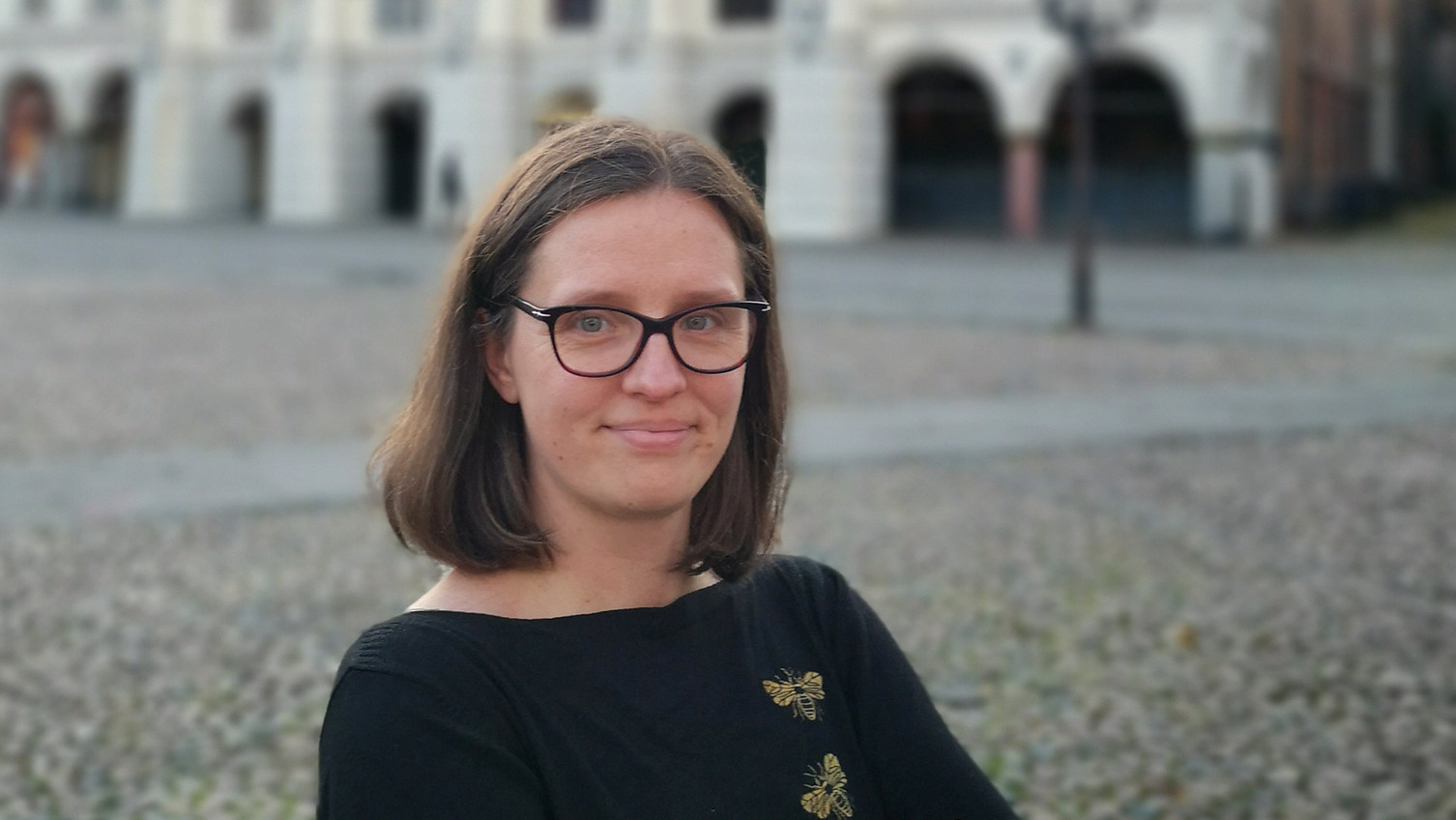LL.M. Sustainability Law - Exciting Interdisciplinarity
2022-11-21 Anna Hinzer, a lawyer, and Julia Brandt, an industrial engineer, are studying the part-time Master's programme at the Professional School. Now they have organised a study week for themselves and their fellow students with guided tours of the plant and specialist lectures.
Anna Hinzer deals with energy and environmental law on a daily basis. The lawyer works for a specialised law firm in Düsseldorf. There she advises companies, municipalities and public authorities on issues such as waste and water management law. Right at the beginning of her legal career after her legal clerkship, she was part of a team that advised the Federal Government on the nuclear phase-out: "The interdisciplinarity makes energy and environmental law so exciting. Not only legal, but also ecological or planning issues play a major role." Julia Brandt, an industrial engineer, has a similar perspective. She works professionally for a housing cooperative: "We plan things like charging stations for e-cars and renewable generation plants in the neighbourhood. In addition, we are facing the major challenges of the heat transition." She worked for many years as a sales manager for a manufacturer of wind turbines: "In the project business, you are inevitably confronted with legal issues." Julia Brandt wanted to know more and came across the part-time LL.M. Environmental Law programme at Leuphana Professional School. "I was keen to get to grips with the legal content that I need professionally and that I can use to develop myself further. With my studies at Leuphana, I dived deep into the legal material and was able to learn scientific craftsmanship. An exciting challenge for me." The part-time sustainability law degree programme at Leuphana Professional School offers an interdisciplinary qualification opportunity. Students in the LL.M. programme combine legal expertise with the practice-relevant neighbouring disciplines of ecology, economics and technology. This enables them to evaluate complex environmental law content in a comprehensive context and thus generate well-founded and practical solutions.
After a seminar day at the Leuphana Professional School, the idea for a joint study week was born: "Many of us have exciting contacts. We wanted to make them useful for everyone," recalls Anna Hinzer. With a lot of commitment, the two students put together a study week: The programme included a visit to the Krümmel nuclear power plant, where the group dealt with the issues surrounding decommissioning. In Hamburg, they took a close look at the Aurubis copper smelter. "Only once you have seen how smelting takes place can you also imagine how much energy is actually consumed," says Julia Brandt. During a visit to a wind farm, the students learned about the motivation of the operating citizen energy company. A hiking day took the students to the Lüneburg Heath, including a visit to the Heidemuseum. For Anna Hinzer, the visit to a landfill site was particularly moving: "I didn't realise that it is actually people who pick out the wrong waste from the organic waste. We all bear responsibility for a functioning circular economy ", says the lawyer. In addition to the exciting excursions and visits, the programme also included a seminar on the dismantling and scrapping of wind turbines and a lecture on the nature conservation issues involved in the expansion of wind energy. The students also received information from experts about a waste-to-energy plant and an overview of the current developments in recycling law. They were then able to discuss energy policy challenges with two association representatives. The students also took part in a writing workshop during the study week with a view to the upcoming term papers and the Master's thesis to be written at the end of their studies.
Anna Hinzer heard about the sustainability law course at Leuphana through a colleague. He has now completed the part-time programme: "Energy and environmental law are a huge and dynamic field. The insights and the network from the study programme help me in my everyday professional life. I was able to make many interesting contacts that are very useful to me personally and professionally." Her employer supports her financially with the tuition fees: "In addition, I am flexible in terms of time. I was able to take time off for the study week, for example."
The two students look back on a successful and instructive campaign: "We would like to thank everyone involved and Leuphana for providing us with rooms and technology for the study week." Now Anna Hinzer and Julia Brandt are preparing for their Master's theses.

